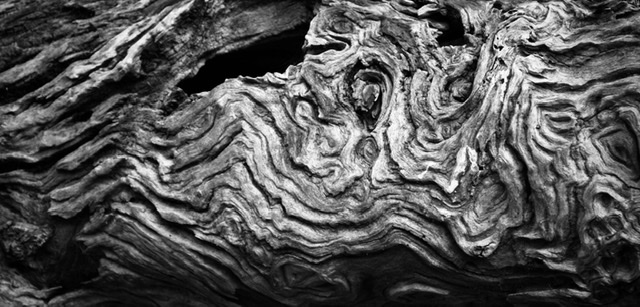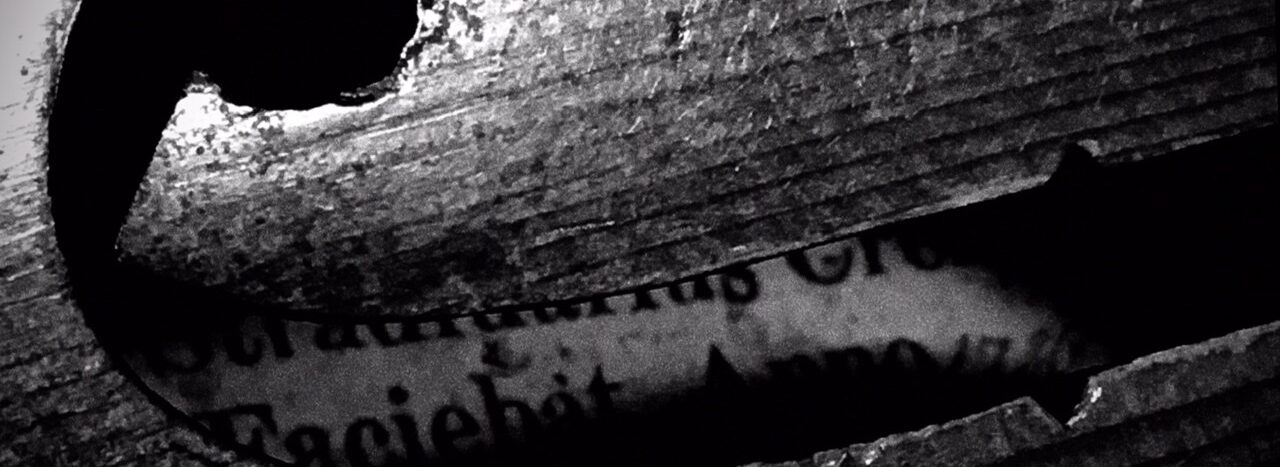There once was a fishwife of a worn to silver seaside town, who, though her hands were stung by years of scales and salt, was nevertheless admired, her hair the ink and spindrift of the sea at night, her smile changeable as tides.
Each day her husband, a brown and knotted driftwood man, would return in his coracle with two baskets of fish. Those with melancholy eyes she salted, those with iridescent skin she cut and quartered for the traders who carried such bounty to places far and strange. Some she smoked and put aside for their own larder, and some she prepared with herbs and roots for their evening meal.
The sea was generous, offering fish and sometimes curious storm washed things, and though their days were unchanging, for the most part they were content. Except – except, though they coupled most nights, they way the sea and shore did, still, they had no child. Sometimes she felt as bare as the tideline on those moonless, silent winter mornings, when the sea had scoured, and receded.
One evening when she could hear the quiet susurr of mothers in nearby houses singing to their children, she remembered what her grandmother had told her when she was young, in a time of famine. “Carve a bone so it will float, a stone so it will sink, and a knuckle entwined between. Cast it in the deep at sunset, and sit vigil through the night on the empty shore. Light no fire, sing no songs. Sometime before the dawn, the octopus headed god will come ashore. Ask of that stranger your boon.” She remembered two hungry seasons, and how they ended in sudden wealth from the sea, and that her grandmother after each had shortened fingers on her sinister hand.
Thus, in the dark of a midsummer eve, when her husband followed the season’s night shoals with the other men, she carved a blue-green stone the shape of an eye, and a knob of bone into a hollow like a cup, and she cut the smallest finger from her hand, pressing the blade in at the first phalanx the way she sometimes separated the leg bones of a fowl. Her tears were more of determination than of pain.
She tied the pieces together, clumsy fingers bloodying the string, so that the nub of flesh, already no longer part of her, but just the bait necessary for a very particular fish, sat equally between the cup and weight. She bandaged her hand in salve and ribbon, and went to the shore, uncertain, of the ache in her hand, or belly, or heart, which was worse.
She swung the lure above her head, the hole in the stone whistling, and let it fly, and it flew far out beyond the night-limned lazy breakers, to where the sea was calm and black and shot through with luminescence. The bone cup floated on the surface, the way palace flowers floated in an ornamental pond in a painting she had seen. The morsel floating somewhere in the layer of brightness could not be told. The stone hung below, in the dark.
She sat on the sand, and pulled her shawl tighter, forgetting her injury for a moment, til it stung. She thought of a child, challenging and retreating from the waves. Of a golden haired boy, trimming a triangular sail. Of a driftwood man, like but unlike her husband, holding his own child in his arms.
The bone flower bobbed, and vanished below the black waters. Green swirled where it had been. Then with a sound like leather, something, someone, emerged from the sea. He had the aspect a of silver skinned youth in a coral crown, and at once, a gnarled and barnacled deepdweller, slow of eye, sudden of sting.
“Woman, do you hunger?” Said the creature with, a sound like waves spilling from lipless mouth, hair writhing.
“Oh I hunger.”
“I have tasted, and know your hunger.’
A great salamander, glistening, blotched and pale, crawled out of the waters behind the sea god. At the sight of it her mouth turned hard, and her breasts warmed and ached.
“Take this child of the sea, do not speak of it, but care for it as you would your own, and in seven years come back to me, and you will, of your flesh and blood, have a child of your own.”
Tears wet her face as she scooped the thing up in her shawl and held it against her breast. It made a mewling sound and she felt small soft fingers on her skin, grasping her nipple.
“Mama,” it said, and fed as she fled home.

“Wife, I am the fisherman, yet you bring me a fish,” laughed her husband, home from his labours, as she walked into the kitchen. “Shall I be the fishwife then? Put it on the bench and I will gut it for you. Though I must say, this beast makes a rank oil, and an ill meat, though I warrant its sharp teeth make a vicious scourge.”
“With that beard and those clumsy hands you make a poor fishwife, my dear. Perhaps a fish-husband? I have heard tell these creatures turn from fish to firedrake under a red moon, with flames for plumage, that I would have for my new midsummer’s festival dress, so I will keep it awhile.”
“We shall be the talk of the town, the wife who keeps a fish wrapped in a shawl like a swaddling! Well, keep your ugly fish. When he has grown shall we make a feast or send him to the minster to learn his letters?”
“If he wants, to learn his letters, he will” she said.
The creature in her arms burbled with a sound like the sea against the sides of hollow boats, a peculiarly contented laughter.
The household soon settled into a routine. Thorgold, who was a kindly man, and believed there were still greater mysteries in the sea than fish that walked and wives that pined, brought into the house an old oak bath. He caulked it well with pith and gum, filled it with sand and rocks and seawater, so it made its own little shore, where the creature could bask on the sand or partially submerged in the brine, as was his wont.
Anwen, (for that was the fish-mother’s name) set to knitting a cardigan of coloured wool in a thick rope pattern, which would hold moisture well. Young Oompla made mewling complaint if he slept too close to the fire and his skin dried. The sea damp cardigan kept his skin iridescent and gleaming, and he would burble, “Oompla” quite contentedly. By a kind of natural, unspoken agreement, all three quickly recognised this sound, like small waves against a wooden hull, as the creature’s name.
“Oommpla, my dear, come to the table for your supper,” Anwen would sing in the evening, and Oompla would burble “Oompla”, and come from his tub on skinny, dexterous legs, to sit at the table and eat his favourite, steamed white bait and sea greens. After he would smile with a wide, toothsome grin.
Later in the evening, Thorgold would show Oompla the tying of knots and other sea crafts, and with his small nimble fingers, Oompla was proficient after only a few tries, while Anwen read poems and stories from The Book Of The Sea, to which husband and child would both respond with exclamations of “Oooom!”, at the exciting feats and monstrous discoveries, and “Plaaaaaaaa,” at the terrible tempests and tragic drownings.
There were many busy words spoken behind idle hands when Anwen would take Oompla, wearing his cardigan and wrapped in a net sling against her chest to market. To such empty-lipped looks and scandalised questions she would just say that she was bringing up a fish for his midsummer plumage, no more, no less, and that was the end of the matter.
Well, the end, until, after several weeks, a delegation of the town’s concerned folk knocked at their door.
Anwen was stitching knotted appliqué anchors to a sea blue velvet coat she had made for Oompla, while the fish-child, with a few deft twists was tying more of the decorations. She stood, gathering Oompla in his net sling, behind her.
The village master, perhaps part walrus, stood in their small parlour, kindly frowning, and the priest, at least as much lammergeier as lordling, bent below the low figured ceiling, where tools and lamps and gourds and drying fish and herbs and bobs of coloured glass hung from scraps of net, spoke.
“The folk are concerned, Anwen, if this is a fish, or a child. It is said even the Lord and the high folk in his great hall laugh at the idiot village where the women have fish rather than bairns.” Those gathered outside the open door, nodded and grumbled in assent, the sky behind them darkening in the bruised colours of a fast approaching summer squall.
“Fools will always frown or laugh,” Anwen replied, “but I’m sure his lordship has bigger fish to fry.” Oompla, from her back, peered cautiously over.
“As The Book Of The Sea says, ‘Keep of the sea what the sea freely gives, return to the sea what belongs to the sea’.” Fiercely quoth the priest.
“I hear tell the Emperor of Malagasy has a golden fish with curling moustaches, that his seven concubines feed sweetmeats everyday, and that he augurs from its fast flickering movements his plans for conquest, but this is no such fish as that, this is a plain fish, out of water I grant you, but still quite spry and plump. Of course it is said such fish grant long-life and renewed vigour when reduced to a broth, but if that is your aim I tell you, sirs, when the sea gives you such a fish, you may have it, but this fish is my fish.”
“And yet, Anwen, you carry the creature, and burble to it, and dress it in fine raiment,” said the priest, the apple in his throat bobbing in a manner both reviling and voracious.
“I hear the Lord, when a child, had a bear that wore a vest and doublet, knew its own name and could count to three. Did the Lord’s folk make demands of his mother that the bear be turned loose in the woods for sport, or drained of its bile to invigorate their lax appendages? I think not.”
“Ah, exactly then, Anwen. If this fish that you carry as a child can speak his name, and count his numbers, he must be both baptised and attend school for his letters, if not, the village will decide if it shall be consumed by all in a healthful broth, or returned to the sea.”
About then the rising squall struck. Those outside wetting their lips fled at the downpour, clutching at escaping hats and the lapels of their flax coats. The priest stood glowering.
Oompla said, “Oompla,” and squirted the crowing man with three quick squirts of water from his full gullet pouches, counting gleefully in his chirrupy voice, “One, two, three!” after each briny squirt.
“It has been decided, then,” the village master said, beaming. “Young Oompla shall be baptised and learn his trades and letters with the other village children.”
The priest dabbed gloweringly at his face with a linen kerchief, while Anwen laughed and held Oompla close, and thought to the bargain she made on the beach, and what that sea god would think of its fosterling learning hey-ho-a-day and three plus three, and joinery, and to sew a shark skin jerkin and cast a weighted net, and all the other lore of those who live above the sea in its graces, not below it.
Oompla was baptised in rainwater and in salt, as was the custom, from a driftwood bowl, by the whalebone temple on the shore, the villages singing songs of praise from The Book to the new child. What they thought, who knew, but some remembered the squall of the day it was decided, and the blue calm of the morning of the ceremony, and took it as a portent.
In the upturned hull that served as kirkroom and school, Oompla soon learned that he could calculate on his sixteen lithe toes and fingers more rapidly than the other children on their ten. Although the sea-sough and basso waves of his voice were not readily given to debate, or history, or argument, or the other flimsy arts, he could sing two countered parts from The Book Of The Sea in contrasting harmonies to great effect, earning in equal measure suspicion and respect from Father Urgolain. While the children played games of Cast The Net, and Rover, Red Rover, on the sand when the priest attended some other duty, Oompla showed them how he could call waves, a little faster and higher, with his sea voice, and once, when one small group of boys got it in their stern jaws and stony knuckles to punish him for his soft and glimmering appearance, and held him down and roughed his appliquéd jacket, he called a roil of green crabs from the coral reefs, that swarmed up and pinched the boys, vicious with hard, serrated pincers, until they howling fled. Oompla called calming waves to ease the crabs’ way back to their domain, this song calmed the children too, and from then he would sing it quietly if the children grew hard and sharp and brittle, as they seemed to do when gathered in vying crowds.
Despite the scowls of the priest, his glaring fish-hawk aspect, Anwen walked Oompla to the school’s shell blazoned door each day, and meet him there again in the early afternoon.
“Were the other children cruel today?” She would ask, “Was Father Urgolain?”
“No, Mother, I sang him the song of the Red Tern, from The Book, and he was pleased, and I showed the children how the narwhals joust like knights, and they were pleased. Jesma said she liked my coat, I showed her your way of tying string in fish and fronds and anchors for its decoration.”
Oompla both learned his lessons and grew faster than the other children, and in the span of a few bountiful seasons sat at the back of the class, with the older children, given less to play and more to the tasks demanded of passing time. His mother had made him a fine new sea-silk coat, and Jesma had made him a necklet of knotted glass and anchors. She had eyes like the summer sea, and the summer’s furious laughter. He had grown into a handsome walking fish, upright as a voyager, with coloured patterns on his skin like the words of God. To see them walking through the market, or calling waves like stallions on the shore, was to imagine the young gods had come again amongst them.
But one morning when he went to meet her by the arced bones of the sea temple, she was not there. At the polished ebon door of her father’s house, a servant through the latch simply said, “She is no longer here.” When Oompla insisted, in his sea voice, her father came, bearing a harpoon, a drunken, squalling aspect, and said, “Begone, creature.”
The sea rose and the day darkened. At home his mother said, “She has gone to serve on one of the great Lord’s ships, using the sea songs you taught her to call kind winds and easing waves. Your friendship has brought her much honour, and she would be here if she could.”
“In the great deep of the sea, hours slow to days, days to years. The great leviathan’s heart strikes only once in a handful of moments, but with as much love as any mother for her sea-lost child. I think I will return to the sea, mother, for time, here, now, has become so much more burdensome than that weight, my heart has stopped.”
“Soon my love,” Anwen said. The nub of her small finger had been aching again of late. The seventh midsummer was fast approaching.
It was a moonless night, the polished sea softly singing, the other folk had turned home, from their celebrations. Around some dimming fires, others slept away the gleam and raucous laughter of their intoxicated dreams.
Anwen, holding Oompla’s small cool hand, walked to the quiet, stony beach around the heads, beyond the sea-temple, where the receding tide exposed a scape of frown and molten rock, black and coally hissing.
From the steam and roil of one eye-dark pool, the sea-god rose, water pouring off his green and mottle skin like blue flame from burning copper.
“You have fattened this creature for seven years, kept it in health,” the deep one said, in that now familiar voice of wave and cliff, “preserved its life from threat, nurtured it through its changes. Revealed nought of this bargain. Now it is grown. You may cast it in these burning stones, and consume each morsel of its flesh, then, in months hence, you will be with child, or, for the offering of another morsel from your hand, you may take the creature, and for another seven years, return home.”
The sea god held forth a knife, jewelled and barnacled, the crescent blade honed and bill-hook bright.
Anwen thought of that child, of that young driftwood man, nut brown, sea-polished, with his own sand-coloured child in his arms, and of this wide-mouthed, lantern-eyed creature, with its fleshy moustaches, and silvery, ink blemished skin, its laments, sea songs and laughter.
Oompla looked at her, an oil-thick tear silking from the corner of his eye.
She thought; this was the first time she had seen him cry.
“Oh, Mama,” Oompla said.
Taking the knife from the sea-god’s hand, she did.

